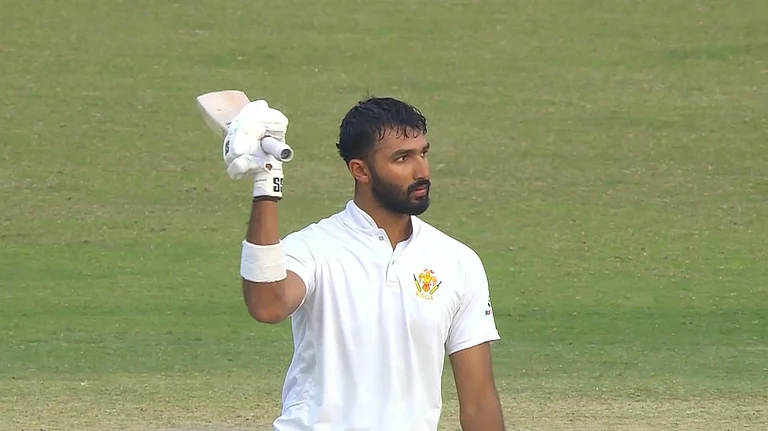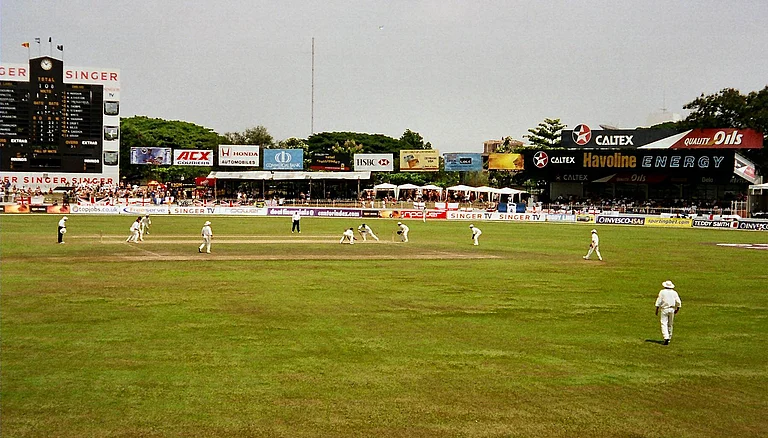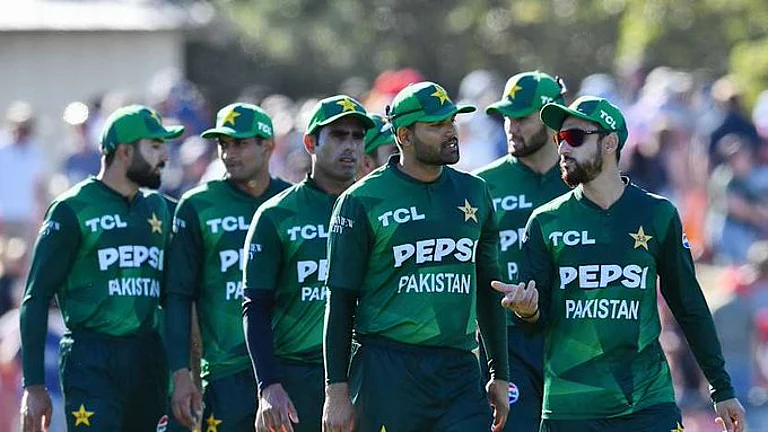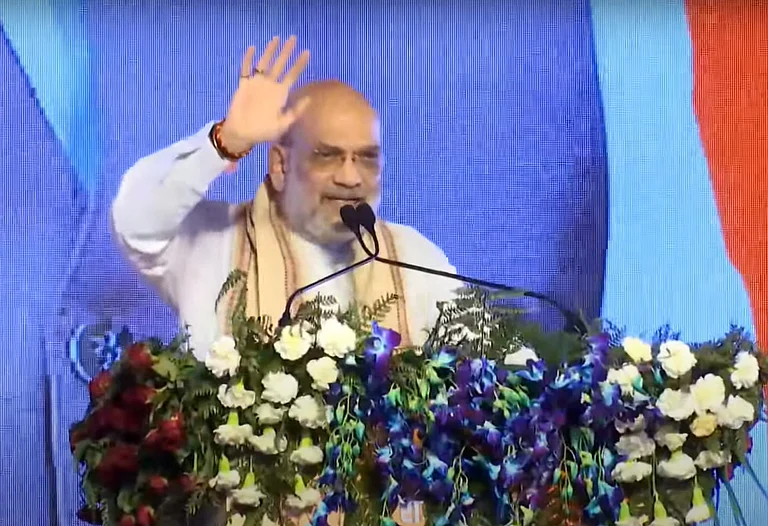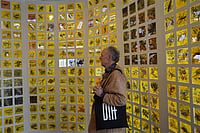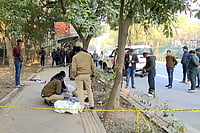Rarely does the Pakistani media evince interest in India’s domestic happenings, not even in its exciting political slugfests. But in a sharp departure from this norm, both English and Urdu newspapers sizzled this week with the news about Anna Hazare and his defiance, and the growing clamour against corruption in India. Something about his frontpage visage—Gandhi topi, spectacles, winsome smile—seems to have prompted Pakistanis to interpret his call to Indians as one to them too. As telling them it’s time they launch a crusade against corruption in their own country.
As Hazare was packed off to Delhi’s Tihar jail and the crowds began to mass in his support, Hazare was among the top headlines on news channels. As for the newspapers, they carried multiple stories and churned out editorials in his support. The common refrain being whether the moment has come for Pakistan’s Hazare to rise, to combat the perennial malaise of corruption plaguing the country, over which presides Asif Ali Zardari, who’s derisively known as ‘Mr 10 per cent’.
In reporting extensively on Hazare’s fight, the newspapers appear to have subtly launched a campaign against corruption in Pakistan too. Mohammad Malik, resident editor of English daily The News, which has been publishing tales of corruption involving Pakistan People’s Party bigwigs, tells Outlook: “The chattering classes here are equally excited regarding Hazare’s potential to stage a revolution for radical change. Corruption remains an issue for us as well, in fact it is the number one issue. We see the Hazare uprising as a commendable exercise and this is why you see an informed campaign on the frontpages.”
There’s also an element of envy in watching India’s civil society mount a challenge to its government, with many Pakistani observers wistful for a Hazare movement here. The only occasion that civil society has delivered in Pakistan was when the country’s lawyers triggered a nationwide protest that led to the reinstatement of Chief Justice Iftikhar Muhammad Chaudhry, whom the Musharraf regime had summarily dismissed.
Referring to Hazare, the English daily Dawn thought it was indeed time for dissent in Pakistan, arguing that in addition to the Supreme Court’s crackdown on corruption, “other voices, too, must be raised if we are serious about salvaging society”. Similarly, The News observed, “There is clearly a greater need to protest graft in our own country—but it is a good omen that so many Indians are putting up a serious fight against corruption. The outcome of the battle between Hazare and the government will be interesting to observe.”
Many analysts, however, argue that no movement can succeed unless a political party champions it. Says political commentator and TV host Nusrat Javeed, “Mother Teresa, in all her greatness, could not bring about a revolution, and remember Gandhi was a politician before he became a Mahatma. We have seen strong civil society movements in India, but unless politicians take control of it, they fizzle out.”
Some see in cricket icon-turned-politician Imran Khan the potential for a Pakistani Anna Hazare. As strategic analyst Shireen Mazari, who has joined Khan’s Tehreek-e-Insaf opposition party, advances: “Imran is the answer to India’s Hazare and has been campaigning against corruption for several years. In fact, it is this part of our manifesto that has captured the imagination of Pakistan’s youth as he continues to question corruption eating away at every institution in the country. But why is the media here shy of detailing the alleged corruption of military leaders?”
A diehard Benazir Bhutto supporter who is currently sidelined wants a pan-South Asian leader to combat corruption, “Someone like Hazare could lead a movement in the region where people across geographical borders could raise his banner to fight corruption in their own states.” But that is for the future. For the moment, the Pakistanis are intently hoping that Hazare trounces his government.







